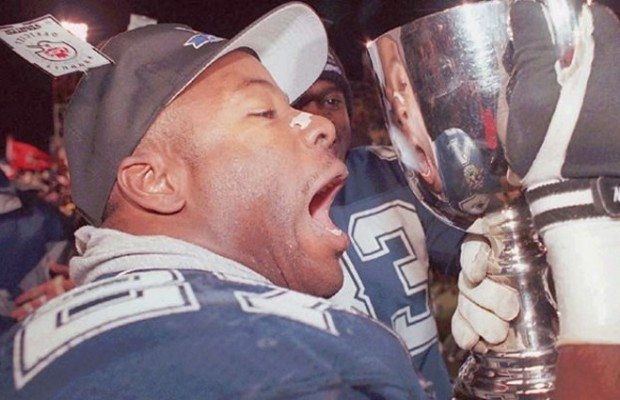Wild Stallions – How a Team From Baltimore Rocked the Canadian Football League Forever

A Grey Cup win for a Canadian franchise could bring out hundreds of thousands of fans for a downtown parade. There was no parade in Baltimore. The NFL was already coming to town, and the Stallions became an immediate afterthought. (Speros did sponsor a 20-year reunion this past summer that included many former players.)
And with the Ravens (née Browns) headed east for the 1996 NFL season and beyond, the only question was what would ultimately happen to the Stallions.
A few months later, the CFL quashed the entire American expansion effort, folding the teams in Birmingham, Shreveport, Memphis and San Antonio, and moving the Baltimore franchise to Montreal. Just as the Stallions had returned football to Baltimore after a 10-year wait, they would now bring football back to Montreal nine years after the Alouettes folded before the 1987 season. Jim Popp, who was the general manager of the Baltimore Stallions, remained with the Alouettes where he won three more Grey Cups and is still the team’s GM and head coach. In 1997, Larry Smith resigned as CFL commissioner and became president and CEO of those same Alouettes.
Officially, the Montreal Alouettes do not recognize the Stallions’ two-year-existence as part of their official team history.
To this day, the Stallions’ victory remains an odd footnote in CFL lore. Perhaps if the team had survived to establish a more well-known identity, it wouldn’t seem so out of place, but knowing that the CFL is likely never to expand into the U.S. again means it now lives in its own singular bubble for all time.
And even though it resulted in the successful return of football to Montreal – a public relations coup for the league that probably can’t be overstated – and the eventual retraction of the CFL to a purely Canadian endeavor, the idea of an American team in possession of the Grey Cup is still a lamentable fact of history for some.
“I’m sure for some people it was enraging,” Cosentino says. “I felt like it was the right moment for that to happen, but I knew this was going to be a problem for a lot of CFL fans. I did not expect the league to contract so quickly. So in hindsight, I can tell you I hate that moment, today, knowing that the league stayed and those teams folded, but at the time, I remember being OK with it after witnessing the year they had.
“They deserved to win, but yeah, if you’re just talking about that question: How do you feel as a Canadian with the Grey Cup sitting in Baltimore? I think I hate it. I think it’d be something we’d want back real fast.”
For Mike Pringle, who played nine more seasons, appeared in two more Grey Cups and was elected to the Canadian Football Hall of Fame in 2008 in his first year of eligibility, that frigid day in Regina remains a point of pride that can never be taken away, even if the Stallions never properly received their due.
“It will be stamped into history because nobody can trump that,” he says. “But we were such a strong team offensively, defensively, and in special teams. We had so much talent on that team. We could’ve competed with anybody.
“I think it was probably the best team in the history of the CFL, bar none.”
Link to original article in Rolling Stone magazine.